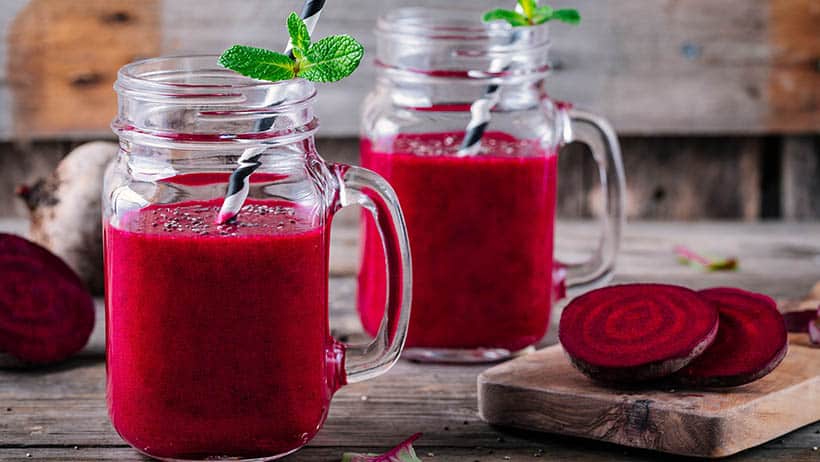
If you’re trying to live healthfully, you’ve probably heard or seen the word “cleanse” in an article or at a restaurant and wondered what it means. A cleanse is a special, restricted diet people follow for a set amount of time in order to improve their health in some way. Cleanses typically last between one day and one month — although, in rare cases, they can last even longer. While most people follow established cleanses, you can research and create your own cleanse based on your specific tastes and your body’s needs.
Most cleanses involve removing many types of foods and beverages from your diet. The off-limits items often include alcohol, animal products, and foods or drinks that contain added sugar. Some cleanses, such as juice cleanses and fasts, involve removing all solid foods and only consuming liquids. Other cleanses allow you to consume solid foods.
Are you curious about trying a cleanse, but unsure if it will help you? Consider these four common reasons people pursue cleansing as you determine if a cleanse is right for you.
Cleansing to Practice Mindful Eating
A major reason many people cleanse is to practice conscious, mindful eating. Whether you cut out coffee and alcohol, sweets and fried foods, animal products, or all solid foods, cleansing can help you notice cravings and their triggers. A cleanse can help expose the difference between eating because you’re hungry, and eating because you’re bored, sad, or anxious.
Cleansing also can help increase your awareness of what’s in the foods you eat — as well as the production and distribution processes that occur before food reaches you. For example, Oprah tried and promoted a 21-day cleanse created by Kathy Freston. She then wrote that avoiding animal products during that time caused her to gain awareness of the animal lives that go into her meals normally.
Cleansing to Promote Weight Loss
Another common reason people cleanse is to help them lose weight. Because of the many food restrictions involved in a liquid cleanse, these types of cleanses often spur weight loss with a lower fat, sugar, and calorie content than a standard diet.
If you do a cleanse with the goal of losing weight, try to think of it as a way to jumpstart a new, healthier diet that will lead to sustained weight loss. You might complete a three-day juice cleanse, for example, then stick to a healthier diet once the cleanse ends. Do not view the cleanse as a quick fix or fast track to thinness. Eating an unhealthy diet and then cleansing once in a while is just yo-yo dieting. While that approach might lead to short-term weight loss, it’s unhealthy in the long run.
Cleansing to Detox the Body
Cleansing also can provide an opportunity to lighten the workload on your liver and kidneys by removing the toxins and impurities often found in your diet. Most cleanses require you to eliminate foods with additives, such as MSG, chemical preservatives, and artificial flavors, colors, and sweeteners. Many cleanses also recommend you stick to organic fruits, vegetables, and juices in order to avoid ingesting the pesticides sprayed on conventional produce.
Be sure to drink a lot of water while cleansing to help your body flush out unwanted chemicals and particles. Opt for reputable spring water, or filter your tap water to remove heavy metals and chemicals, such as fluoride and chlorine. A detox cleanse also is a great time to sift through all of your personal care products to ensure you aren’t absorbing unhealthy chemicals through your skin.
Cleansing to Promote Wellness
People with and without chronic illnesses also cleanse to promote a feeling of wellness. Cleansing can help accomplish this by offering a break from the standard American diet (SAD) — a diet full of meat, fried and sugary foods, and refined carbohydrates. The SAD has a reputation for many negative health consequences, including an increased risk for cancer, high cholesterol, and high blood pressure. Changing your diet — even temporarily — may potentially benefit your health.
People sometimes make cleanses part of an elimination diet in which they avoid specific foods, such as wheat or dairy, for a period of time. This process helps them determine if feelings of sluggishness, skin issues, or other symptoms of illness lessen or disappear when they no longer eat those foods. You can then limit consumption of any food items you suspect may lead to allergies or food intolerances to help manage symptoms. (Consider talking with your doctor before permanently avoiding any foods to ensure you don’t unnecessarily cut something out.)
There are many different types of cleanses and even more reasons for doing one. If the idea of cleansing intrigues you, search for a type of cleanse that meets your specific needs and goals. If you haven’t cleansed before, ease into it by starting with a short cleanse that contains solid foods. If you want to pursue a long-term or all-liquid cleanse, consider consulting your doctor beforehand — especially if you have existing health issues.